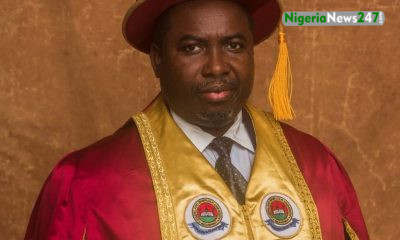NIGERIA NEWS
CHRICED Calls for Unicameral Legislature Amid National Assembly Standoff

The Resource Centre for Human Rights and Civic Education (CHRICED) has called for a complete overhaul of Nigeria’s National Assembly, describing the current bicameral structure as inefficient, expensive, and plagued by internal rivalries.
The call comes amid a growing rift between the Senate and the House of Representatives, after the House threatened to halt consideration of all Senate-sponsored bills. This move followed the Senate’s alleged failure to act on 146 bills passed by the lower chamber.
In a statement issued on Saturday and signed by its Executive Director, Dr. Ibrahim Zikirullahi, CHRICED said the standoff represents a serious dereliction of duty at a time when the country faces mounting economic and security challenges.
“It is particularly troubling that while both chambers routinely fast-track executive-sponsored bills with minimal scrutiny, they consistently neglect citizen- and civil society-driven legislation,” Zikirullahi said.
He highlighted several critical bills that have stalled for years in the National Assembly, including:
-
The Employee Remuneration Protection and Unpaid Wages Bill
-
The Gender Representation Bill
-
The Whistleblower Protection Bill
-
The Sexual Harassment in Tertiary Institutions Prohibition Bill
“These are bills designed to address urgent issues affecting everyday Nigerians, yet they have been left to gather dust,” CHRICED noted.
The organization further criticized lawmakers for their consistent unity on constituency projects and personal benefits, while failing to collaborate on key national priorities.
Call for a Unicameral Legislature
CHRICED reiterated its longstanding recommendation for Nigeria to transition to a unicameral legislature, arguing that the current two-chamber system—comprising 469 lawmakers—is not only costly but also fosters unnecessary institutional rivalry.
“A unicameral system would eliminate inter-chamber conflicts, reduce the cost of governance, and streamline legislative processes,” Zikirullahi stated.
He cited countries like Finland, Ghana, and Zambia as successful examples of nations operating effectively with a single legislative chamber.
With the National Constitution Summit scheduled for July 2025, CHRICED urged civil society, professional bodies, traditional and religious leaders, and the general public to place the unicameral option at the center of constitutional reform discussions.
A Call for Accountability
CHRICED also called on Senate President Godswill Akpabio and House Speaker Tajudeen Abbas to immediately resolve the ongoing impasse and prioritize the passage of critical, long-delayed legislation.
“If they cannot fulfill this fundamental responsibility, they must consider stepping aside in the interest of national progress and democratic integrity,” the statement read.
The organization concluded by urging Nigerian citizens to hold their representatives accountable through continuous civic engagement, public advocacy, and the electoral process.




















You must be logged in to post a comment Login